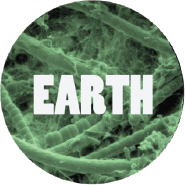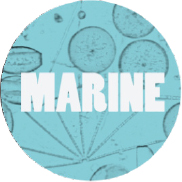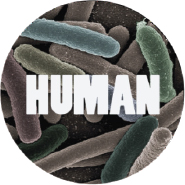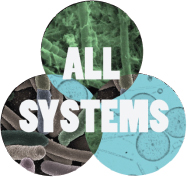Appendix A
Seminars Agendas
The Chemistry of Microbiomes
Earth Seminar
September 20, 2016 from 2:00 PM–5:00 PM

Keck Center of the National Academies
Room 201
500 Fifth Street NW
Washington, DC 20001
TUESDAY, SEPTEMBER 20, 2016
| 2:00 PM | Doors Open, Room 201 |
| 2:10 PM | Welcome and Introduction |
| Jim Fredrickson, Pacific Northwest National Laboratory | |
| 2:15 PM | Illuminating the Dark Matter Beneath Our Feet |
| Kelly C. Wrighton, The Ohio State University | |
| 2:45 PM | Life in High-Temperature Environments: Modern-Day Analogs of Early Earth Still Relevant Today |
| William P. Inskeep, Montana State University |
| 3:15 PM | Exometabolomics Linking Genomes with Environments to Understand How Webs of Microbes Sustain Biomes |
| Trent E. Northen, Lawrence Berkeley National Laboratory | |
| 3:45 PM | Discussion |
| 5:00 PM | Adjourn |
The Chemistry of Microbiomes
Marine Seminar
October 19, 2016 from 2:00 PM–5:00 PM

Keck Center of the National Academies
Room 100
500 Fifth Street NW
Washington, DC 20001
WEDNESDAY, OCTOBER 19, 2016
| 2:00 PM | Doors Open, Room 100 |
| 2:10 PM | Welcome and Introduction |
| Edward DeLong, University of Hawai‘i | |
| 2:15 PM | Chemical Ecology as the Language of Microbiomes—and Life in General |
| Mark E. Hay, Georgia Institute of Technology | |
| 2:45 PM | Examining the Chemical Interactions Within Oceanic Microbiomes Using Quantitative Proteomics |
| Mak A. Saito, Woods Hole Oceanographic Institution | |
| 3:15 PM | Better Living Through Chemistry: Organic Nutrient Cycles and the Open Ocean Marine Microbiome |
| Daniel J. Repeta, Woods Hole Oceanographic Institution | |
| 3:45 PM | Break |
| 4:00 PM | Discussion |
| 5:00 PM | Adjourn |
The Chemistry of Microbiomes
Human Seminar
November 9, 2016 from 2:00 PM–5:00 PM

Keck Center of the National Academies
Room 105
500 Fifth Street NW
Washington, DC 20001
WEDNESDAY, NOVEMBER 9, 2016
| 2:00 PM | Doors Open, Room 105 |
| 2:10 PM | Welcome and Introduction |
| Barbara Gerratana, National Institutes of Health | |
| 2:15 PM | Digitizing the Chemistry of Microbes: Its Importance, Current Status, and Opportunities |
| Pieter C. Dorrestein, University of California, San Diego | |
| 2:45 PM | Strain-Specific Functional Profiling in the Human Microbiome and Its Molecular Environment |
| Curtis Huttenhower, Harvard University | |
| 3:15 PM | Break |
| 3:30 PM | Discovering and Manipulating the Chemistry of the Human Gut Microbiome |
| Emily P. Balskus, Harvard University | |
| 4:00 PM | Discussion |
| Viewers on the Web are encouraged to ask questions. Please submit questions to CSR@nas.edu or mention us on Twitter @NASEM_Chem. | |
| 5:00 PM | Adjourn |
The Chemistry of Microbiomes
All Systems Seminar
December 7, 2016 from 2:00 PM–5:00 PM

National Academy of Sciences Building
Room 125
2101 Constitution Avenue NW
Washington, DC 20418
WEDNESDAY, DECEMBER 7, 2016
| 2:00 PM | Doors Open, Room 125 |
| 2:10 PM | Welcome and Introduction |
| Tina Bahadori, U.S. Environmental Protection Agency | |
| 2:15 PM | Talking with Molecules: Marine Bacteria and Microalgae |
| Mohammad R. Seyedsayamdost, Princeton University | |
| 2:50 PM | Engineering the Microbiome |
| Timothy K. Lu, Massachusetts Institute of Technology | |
| 3:25 PM | Genome-Scale Metabolic Modeling of Microbial Communities |
| Jennifer L. Reed, University of Wisconsin–Madison | |
| 4:00 PM | Open Panel Discussion |
|
Moderator: Carole Bewley, National Institutes of Health |
|
|
Panelists: Trent R. Northen, Lawrence Berkeley National Laboratory (via WebEx) |
|
|
Mak A. Saito, Woods Hole Oceanographic Institute (via WebEx) |
|
|
Mark E. Hay, Georgia Institute of Technology (via WebEx) |
|
|
Mohammad R. Seyedsayamdost, Princeton University |
|
|
Timothy K. Lu, Massachusetts Institute of Technology |
|
|
Jennifer L. Reed, University of Wisconsin–Madison |
|
| Discussion Questions: | |
|
|
| 5:00 PM | Adjourn |
This page intentionally left blank.






